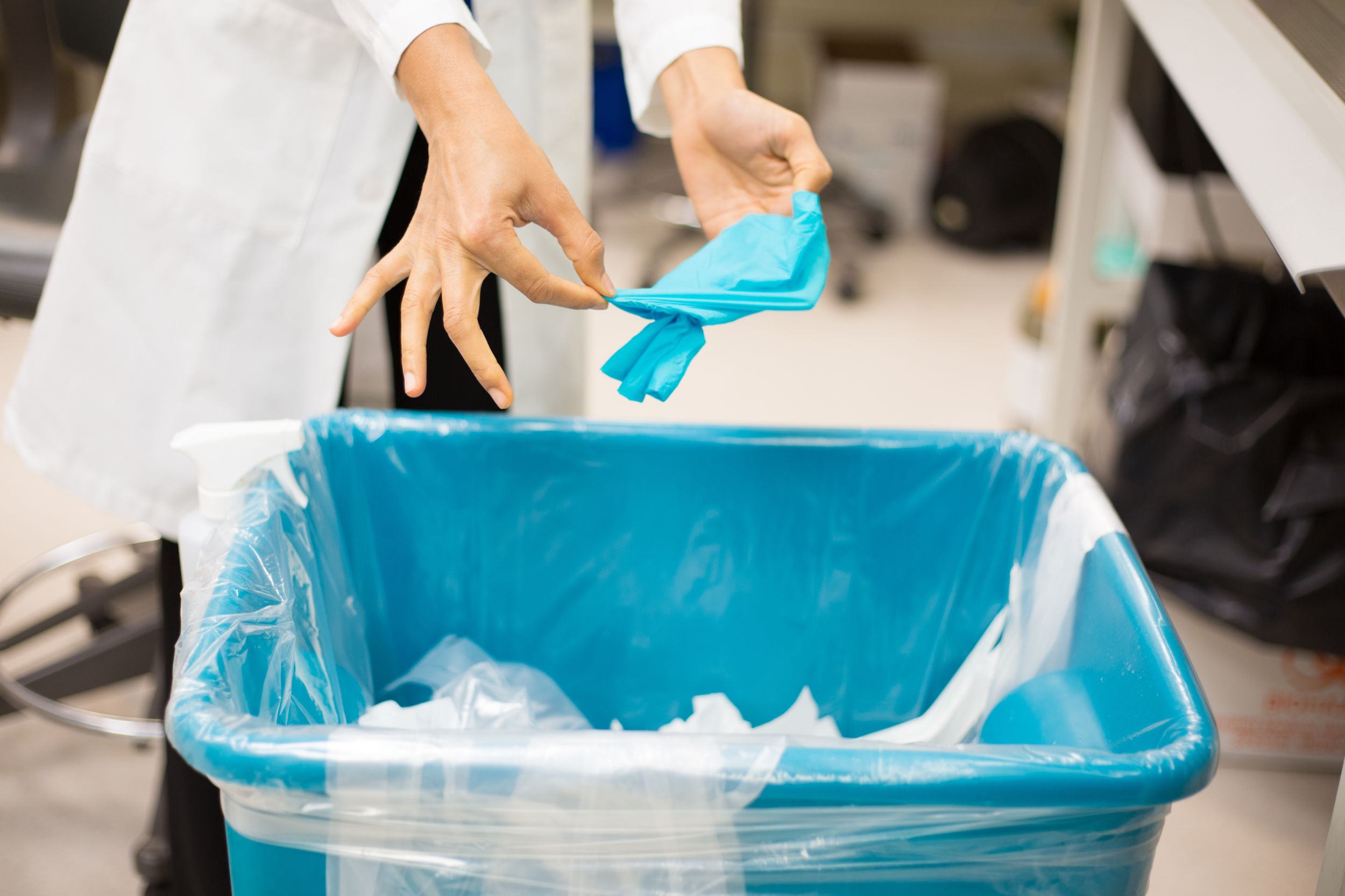
"Bags of waste collected"
In 2023, the gastroenterology team carried out a waste audit to gain important insights into the waste generated during endoscopic procedures. With concrete measures, they are contributing to greater sustainability at the USB.
Gastroenterology is particularly concerned with examinations of the gastrointestinal tract. How did you come to carry out a waste audit here?
Florian Rybinski: We wanted to find out how we can reduce our ecological footprint. To do this, we also need to understand how much of which waste is produced so that we can better manage potential savings measures.
Jolanda Vögtli: We have always felt that we produce a lot of waste. We carry bags of waste out of the rooms. This is also due to the products that are packed three, four or five times.


Dr. Florian Rybinski, Senior Physician, Clarunis Gastroenterology and Hepatology USB
«Die Gastroenterologie ist nach dem OP und der Intensivmedizin der grösste Abfallproduzent im Spital.»


Jolanda Vögtli, Gastroenterology and Hepatology USB
What was the most difficult part of the process?
Florian Rybinski: The biggest challenge in the planning was to ensure that all materials that end up in the waste are really recorded and can be specifically assigned to an investigation. In order to find out how much savings and recycling potential there is, we had to think carefully about how to categorize the materials.
«Wir könnten 90% unserer bisher als scharf kategorisierten Instrumente anders entsorgen und ca. 17% unseres allgemeinen Mülls recyceln.»
Do you still see potential for savings?
Florian Rybinski: There certainly is. We have noticed that we sometimes throw away unused items. This is because they are included in prefabricated sets but we don't need them. In addition, we sometimes don't dispose of our waste correctly. At the moment, virtually all endoscopic instruments are disposed of as dangerous, sharp instruments, even though most of them are not necessary. This causes unnecessarily high disposal costs and is bad for the environment.
Our next step is to recycle more and classify endoscopic instruments better. Whether recycling is possible depends on legal requirements. Close cooperation with the waste disposal department is very important here.
Eric Pflimlin: A lot depends on the supply chains and companies from which we source the materials. There are standardized products such as the adapters for biopsy needles in several sizes. Although I only need one size, I am forced to dispose of all the other sizes. This is where we could start.


PD Dr. Henriette Heinrich, Head Physician, Gastroenterology and Hepatology USB
Henriette Heinrich: In order for changes to be implemented, it is essential that we raise awareness of the issue. The waste audit was very helpful for this. These are small but important adjustments, because something like this naturally also changes work processes somewhat. It is much easier to dispose of all the material from the endoscopy table than to think about what can still be used.
Eric Pflimlin: One potential saving that we identified before the waste audit is the preparation of the tables before an examination. Time and again, patients drop out at short notice, which is why the prepared material is disposed of for nothing. We now only lay the table when the patient is safely examined. This has little impact on the workflow and we save material and therefore resources without losing a lot of time.


Eric Pflimlin, Head, Clarunis Endoscopy Care USB
What advice would you give to other gastroenterology departments or departments that would like to carry out a waste audit?
Florian Rybinski: As a first step, it's important to think carefully about what the aim of the waste audit is. The real tip, however, is to get together as a group and plan the waste audit with doctors, nursing and waste disposal.
What would you like to see in the future for gastroenterology in terms of sustainability?
Jolanda Vögtli: I would like to see more reusable instruments being used again. These are often of higher quality, easier to handle and conserve resources. This requires standardized, traceable processes and appropriate training for sterilization processing staff. There are also medical devices that we are no longer allowed to use due to their expiration date, even though they are triple-sterile packaged. I would like to see solutions for this.
Florian Rybinski: Looking ahead to the next five years, I would like to see us providing telemedical care to more patients in order to avoid long journeys. It would be great to have integrated electronic patient records that make it easier to check whether an examination is really indicated and to be able to plan it properly. Overall, there needs to be greater awareness of green, sustainable endoscopy.
